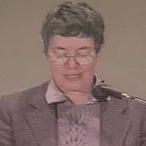Omnibus Spending Bill Establishes FY’88 Budgets
At the end of December, Congress passed and the President signed legislation establishing funding levels for the federal agencies for FY’88. Considering the budget cutting mood of both the Administration and Congress, those programs of particular interest to historians fared well. The National Archives and Records Administration will receive $116 million for FY’88. This represents an increase of six million over the President’s recommendation of $110 million. Of this $116 million, four million is earmarked for the National Historical Publications and Records Commission’s grants program and six million for the development of an architectural design for a new archival facility. Since the National Archives’ current funding level is $100.3 million, the FY’88 budget represents almost a sixteen million increase. However it provides for little new operational money. The money specified for the architectural design, a sizeable increase in the General Services Administration rental charges for storage facilities, added personnel costs, pay increases, and the new federal retirement plan absorb most of the increase.
The FY’88 budget for the National Endowment for the Humanities is $140.435 million, up slightly from the FY’87 amount of $138.64 million. There was also an increase in the Historical Preservation Fund for FY’88. The total of $28.25 million, compared with $24.25 million in FY’87, will be divided with 22 million going to the state historic preservation programs, $750,000 for a Micronesian survey, one million for the preservation of lighthouses, four million for the National Trust for Historic Preservation, and $250,000 for the Critical Issues Fund.
Senator Sasser Holds Hearing on NHPRC Reauthorization
On December 15, the Senate Subcommittee on Governmental Efficiency, Federalism, and the District of Columbia of the Senate Governmental Affairs Committee held a hearing on S. 1856, which provides for the reauthorization of the grants program of the National Historic Publications and Records Commission (NHPRC) for the next five years at a level of ten million annually. Senator Jim Sasser (D-TN), who introduced the legislation and chaired the hearing, explained the need for an increased reauthorization level and noted that “In many states, historical records preservation plans have been tabled until monies can be found; the records, meanwhile, further deteriorate.” Testifying on behalf of the NCC member organizations, I noted that NHPRC grants serve as leverage for securing private support by ensuring potential backers that the project is of genuine significance and capably staffed and organized. Institutions sponsoring NHPRC grants have been true co-sponsors willing to provide at least half of the costs of the projects. In addition to documentary editing and state and local historical records programs, it is important to stress that NHPRC grants have provided the major financial incentives for the emergence of modern archival and records techniques, standards, and strategies.
Freedom of Information Act
In December the House Subcommittee on Government Information, Justice and Agriculture of the Government Operations Committee held a hearing on alternate dispute resolution methods for Freedom of Information cases. An NCC statement submitted for the hearing record emphasized that the cost of litigation has had a chilling effect on historians who would like to pursue their appeals in the courts. Most historians do not have the financial resources to wage a legal battle for FOIA requests. Faced with the choice of undertaking the expensive venture of taking the agency to court or forgoing an FOIA request, many scholars choose to forgo the request. The 1986 amendments to the FOIA, intended as reforms, have not eliminated abuses but instead further entrenched them so that FOI requesters now face more, not fewer hassles. Thus NCC urged the subcommittee to continue exploring ways to improve the administration of the FOIA.
National Endowment for the Humanities
On January 26, 1988 the six-year terms for nine members of the National Council on the Humanities will expire. In addition to these pending vacancies there are three other vacancies. To fill two of these, the White House has sent to the Senate the nominations of Carol Ried-Wallace, provost and vice president for academic affairs at City University of New York, who has a background in literature and previously held positions in the Education Division of NEH, and Alvin Bernstein, who holds a Ph.D. in history from Cornell and is currently Professor of History at the Naval War College. Gertrude Himmelfarb, Professor of History at the Graduate Center of City University of New York, is the only historian now on the twenty-six person council, and she is among those whose terms are expiring momentarily.
The authorization legislation for NEH states that members of the Council “provide a comprehensive representation of the views of scholars and professional practitioners in the humanities.” Since history is one of the major humanities disciplines and since a substantial portion of NEH funds go to history-related projects, members of Congress as well as constituency groups within the humanities have expressed concern over the composition of this prestigious council. Efforts are under way to encourage a balanced representation of historians on the NEH Council.
NCC Member Organizations Hold Semiannual Meeting
On December 28 representatives of the NCC member organizations met during the American Historical Association annual meeting to review the activities of the past year and to identify goals for 1988. During 1987 three new organizations joined the NCC—the Society for Industrial Archeology, the Southern Association of Women Historians, and the Institute for Historical Study (San Francisco)—bringing the total of member organizations to fifty-one. Contributions to the NCC in 1987 totaled $58,250, with ten organizations taking steps during the year to increase their financial support of the NCC. The lengthy list of legislative and policy issues for 1988 included support for the National Archives, reauthorization of the National Historical Publications and Records Commission, funding for the National Endowment for the Humanities, the Freedom of Information Act, support for historical sites in the National Park Service, historic preservation policy, and a broad range of subjects related to access to government information.

